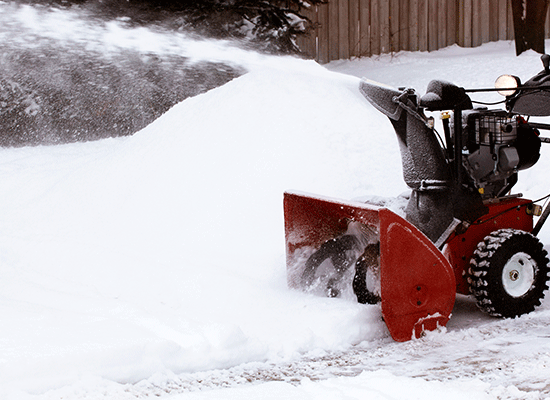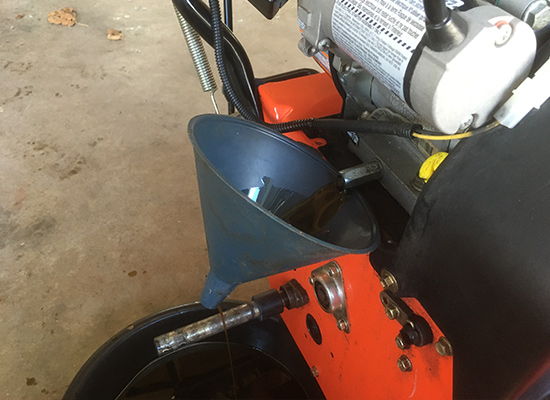What’s the Best Oil for My Snowblower?
Using a high-quality, purpose-built oil can provide extra protection for your snowblower’s engine.
Tough on Oil
Although snowblower engines are used less frequently than other engines, they’re tougher on oil than most people realize.
Compared to liquid-cooled automotive engines, small engines usually lack oil filters, run hotter, operate under constant heavy load, generate more oil-damaging contaminants and are exposed to snow, water and extreme temperatures.
Snowblower engines are often stored in unheated garages or sheds where cold temperatures cause the oil to flow slower at startup, a key driver of engine wear.
Using a high-quality, purpose-built oil can provide extra protection for your snowblower’s engine, reducing the risk of component damage and prolonging its life.
However, most small-engine oils we’ve tested are nothing more than re-labeled automotive oils, which are formulated in large part to enhance fuel economy, not to survive the brutal operating conditions of a snowblower engine.
When a snowstorm hits, you need your snowblower to fire up and help you get the job done. But snowblower engines face unique challenges that can reduce their dependability, horsepower and longevity. Fortunately, there are maintenance practices that can vastly improve reliability, including using a specially engineered small-engine oil.
Tough on Oil
Although snowblower engines are used less frequently than other engines, they’re tougher on oil than most people realize.
Compared to liquid-cooled automotive engines, small engines usually lack oil filters, run hotter, operate under constant heavy load, generate more oil-damaging contaminants and are exposed to snow, water and extreme temperatures.
Snowblower engines are often stored in unheated garages or sheds where cold temperatures cause the oil to flow slower at startup, a key driver of engine wear.
Using a high-quality, purpose-built oil can provide extra protection for your snowblower’s engine, reducing the risk of component damage and prolonging its life.
However, most small-engine oils we’ve tested are nothing more than re-labeled automotive oils, which are formulated in large part to enhance fuel economy, not to survive the brutal operating conditions of a snowblower engine.
Purpose-Built Protection
AMSOIL 100% Synthetic Small-Engine Oil isn’t a re-packaged automotive oil. We specially engineered it from the ground up for small-engine dependability. It’s built to solve the problems that plague small engines, including wear, power loss, oil consumption, harmful carbon deposits and stuck rings and valves.
Excellent Wear Protection
AMSOIL Synthetic Small-Engine Oil is a shear-stable, high-film-strength formulation fortified with a heavy dose of anti-wear additives. It does not thin out due to mechanical shear, ensuring a thick lubricating film. It forms a durable barrier that protects against metal-to-metal contact.









Comments
Post a Comment